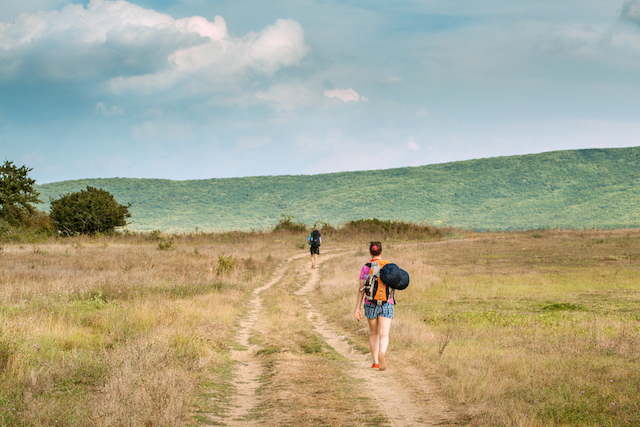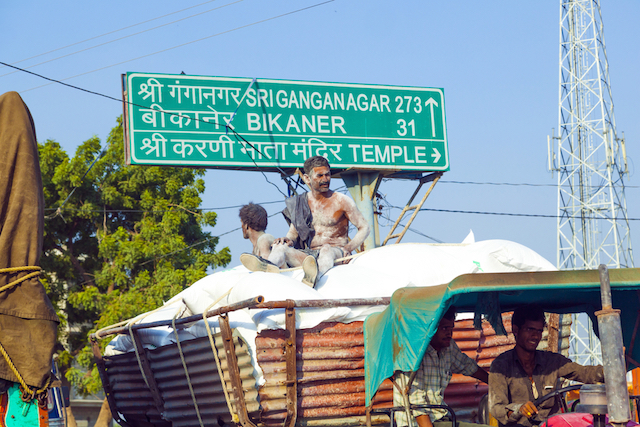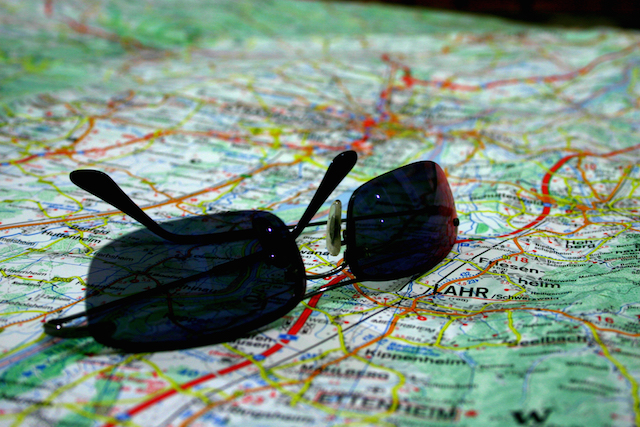
The vast majority of people who go on long-term, RTW trips are doing it on a budget. The size of the budget varies depending on the person, but chances are if you are reading this guide, then you aren’t one of the select few who have unlimited funds with which to draw from.
Because of this, long-term travelers must rely on cheap methods of travel, particularly when it comes to transportation. Flying all the time eats away at the budget, while overland travel in most parts of the world is not only an extremely affordable way of getting around, but it’s also a great way to see the country and interact with the local people.
You will travel overland all the time

If you haven’t traveled by bus, train, or boat often (or at all) in the past, have no fear. It may be a bit nerve-wracking at first, but like anything, once you do it a few times, it’s pretty easy, and chances are you are going to enjoy it immensely. Many, including myself, think it’s a highlight of traveling long-term.
Just be aware and accept that you will be utilizing overland travel often during your trip. It’s the preferred way to travel, it can be super cheap, a lot of fun, and it’s great to see the countryside where you’re traveling. In some cases, you’ll be traveling with nothing but other tourists. Sometimes you’ll be the only non-local on the bus (always a blast!).
While traveling overland can be a fantastic and memorable experience, it can also be horrible. Don’t be scared as it’s just part of long term travel, but you will have a few terrible bus or train rides over the course of a long trip. When traveling long-term, it’s just a matter of statistics, and besides, they always make for the best stories afterwards. You can’t possibly get lucky enough to have a great experience every single time. With the state of air travel these days, you’ll probably be relieved when hopping on the first bus of your trip.
Overnight travel
Depending on where you go on your trip, chances are you will have to, at some point, take an overnight journey by bus or train. The first time a traveler does this, he or she is nervous, doesn’t know how it’s going to be, and most likely expects the worst. It might be best to expect the worst, but more times than not, your experience will exceed your expectations.
Like all aspects of travel, overnight travel differs quite a bit depending on the country and region you’re traveling in. Argentina is known for their posh buses with seats that lay down flat and attendants who serve wine. Bolivia is known for their hellacious bus rides through rigorous terrain and poorly maintained roads . It doesn’t take a rocket scientist to figure out that an overnight bus journey is going to be much more pleasant in Argentina than Bolivia.
It is certainly possible to avoid overnight travel at all costs, but chances are once you do it the first time, you’ll be fine with doing it again and again. The advantages of overnight travel are many. It helps with both the budget and time constraints. While time is on your side when taking a long-term, RTW trip, it’s still nice to waste as few days as possible. When taking an overnight bus or train, it saves on accommodations for the night, which adds up over the course of several months or a year. And if you are a heavy sleeper, you will probably sleep just fine on most buses.
Price of overland travel

The notion of seeing the countryside, spending long bus rides chatting with locals, and just enjoying the slow way of traveling overland is certainly romantic. But after months of doing it, it does get old. But we long term travelers keep forging on. Why? Because it’s cheap. Money and budget determines a lot on a RTW trip, and overland travel is simply the cheapest and most effective way of traveling around most regions.
Costs obviously vary quite a bit, and in some places it’s cheaper to find a budget airline deal than to take the train or bus (Europe and Asia both have quite a few budget airlines where this is possible). But by and large, traveling overland is going to cut down on costs tremendously, and the expense will fit right into your daily budget.
Booking before you leave home
The only reason to book any kind of overland travel before you leave is if you are going to get a pass of sorts. A Eurail pass can only bought outside Europe by non-Europeans. If you’re starting your trip in a place like New Zealand or Australia, where bus tours are popular ways for travelers (particularly younger travelers) to get around the country, it might be a good idea to at least look into your options. It could be cheaper to book before you leave. Similar to the Eurail pass , the United States offers a rail pass to those outside of the US.
Other modes of transport besides buses and trains

Buses and trains are the best mode of transport in most areas of the world. In some areas, though, boat travel on rivers is still a great way to get around, Southeast Asia being one of them. But as modern times catch up and more and more roads get paved, river travel is going by the wayside. Air couriers and cargo ships used to be a viable option for traveling, but it is virtually non-existent these days.
Car rentals are an option nearly everywhere, though whether or not you want to rent a car in a specific city or country depends on your comfort level. Driving in other parts of the world is drastically different than home, so exercise some common sense before renting a car. In a country like India where renting a car may seem suicidal, you could look into hiring your own car with driver – you may be shocked at just how affordable it is.
Campervan rentals are a great way to get around in places like New Zealand and Australia and are awesome if you’re traveling as a family. It’s not the cheapest mode of transport around, but it’s always nice to have your own set of wheels and create your own schedule. Our 5 week road trip in a campervan in New Zealand remains a top highlight of our RTW trip, despite the high costs.
Overland travel differs wildly by region

Where you live and what your travel experience is will determine how much you have used public, overland transport in your travels. Many people who have decided to travel long-term have some travel experience, but it may not have involved international travel. For those who have traveled internationally, there’s a good chance it has been to westernized nations with really good, fast, and expensive travel options. Traveling overland throughout Europe with a Eurail pass is much, much different than taking a 30 hour bus ride in South America.
Overland travel varies wildly depending on the region you’re traveling in. It even differs quite a bit within each country, so it’s important to know what you’re getting yourself into. To help with the planning process, we have researched each region of the world and the options available for overland transport.
In the following pages are guides with a wealth of resources to help you get around in the most comfortable and economical way you can. For specific information on overland travel in each region of the world, be sure to check out the following guides, with resources and sample pricing for various overland journeys:
- Overland Travel In The Americas
- Overland Travel In Africa And The Middle East
- Overland Travel In Europe
- Overland Travel In Russia And Central Asia
- Overland Travel In India
- Overland Travel In China And Southeast Asia
- Overland Travel In Australia And New Zealand
Overland transport checklist
- Accept and embrace that you will have to travel overland often
- Research different regions you plan to visit and what overland travel is like there
- Look into traveling overnight in the regions you will be visiting
- If you are traveling in more developed and expensive regions, research overland travel there
- Research flights in those more expensive regions-they may be cheaper
- If passes are available, cheaper than flying, and must be purchased before departing, buy them
Photo credits: Igor Kolos , Dennis Debono , Jorg Hackemann , Gemma Ferrando